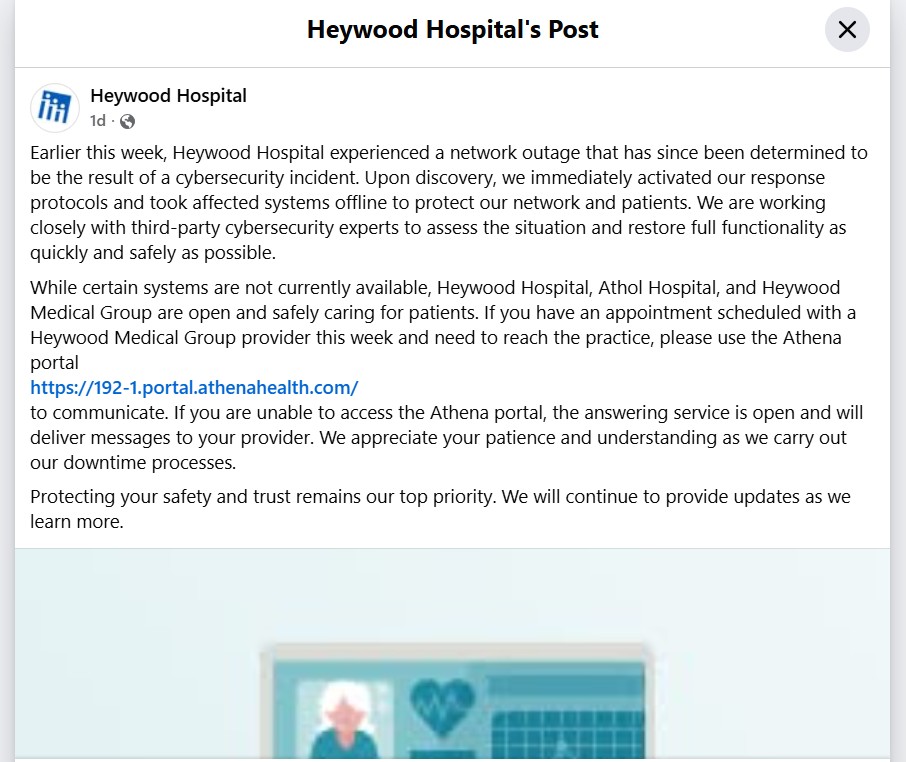Joseph Topping reports:
Heywood Hospital and Athol Hospital recently experienced a network outage attributed to a cybersecurity incident. The facilities, located in Gardner and Athol, Massachusetts, respectively, confirmed they took affected systems offline and sought assistance from a third-party cybersecurity firm. Despite the incident, both hospitals remain operational and are providing patient care. Earlier in the week, in response to the disruption of phone and internet services, they initiated a Code Black ambulance diversion procedure. At this time, officials have not released specifics regarding the nature of the attack or whether any patient data was compromised.
According to hospital updates and local news reports, communication lines are still unreliable as recovery efforts continue.
For more information, visit Dysruptionhub.com.
Heywood Hospital shared the following message on Facebook:

Heywood and Athol Hospitals, vital healthcare institutions within Massachusetts, encountered a serious network disruption this week, linked to a cybersecurity breach. Following the incident, which compromised their connectivity, both facilities immediately acted to isolate and secure sensitive systems. In collaboration with external cybersecurity professionals, they are diligently working to restore full operational capacity. Although their services were momentarily affected, both hospitals maintain their commitment to providing patient care during this challenging period.
The response initiated a temporary Code Black, diverting ambulances mid-week to ensure patient safety and manage resources amidst the chaos caused by the communication breakdown. As of now, hospital officials have not disclosed any details regarding the specific tactics used in the attack or confirmed if any patient data was exposed.
Considering the nature of such an incident, the MITRE ATT&CK framework may provide insights into possible adversarial tactics employed throughout this incident. Potential methods could include initial access techniques, where attackers exploit weaknesses to gain entry into network systems, followed by persistence tactics to maintain access for further exploitation.
As recovery operations progress, communications remain inconsistent, underscoring the ongoing impact of the breach. The hospitals’ proactive measures, including their public statements, highlight their prioritization of both patient safety and transparent communication during this crisis.
Continued updates from Heywood Hospital will provide further clarity as they collaborate with cybersecurity experts to navigate this situation, aiming to reinforce their systems and restore full functionalities promptly. The complexity of cybersecurity incidents emphasizes the critical need for heightened awareness and preparedness within the healthcare sector, where uninterrupted service is paramount to patient safety and trust.
